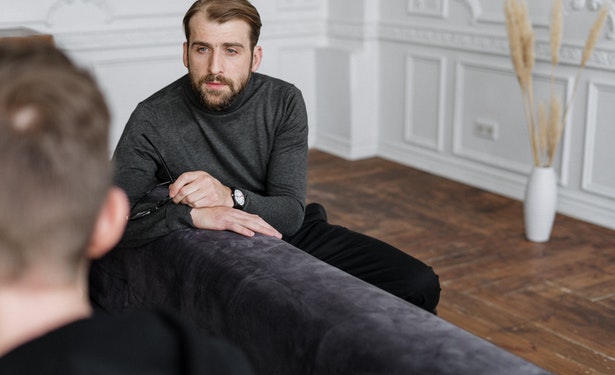Finding Male Therapists: An Exploration into Men's Mental Health
Date: Sunday 17 Dec 2023
The conversation around mental health undeniably holds a significant role within our society, and the availability of appropriate therapeutic resources tailored to individual needs forms a vital component of this discourse. A key area that merits consideration within the mental health field pertains to men's mental health, particularly their access to male therapists or male-centric therapy in both face-to-face and digital formats. A recent feature by The Guardian delved into this issue, illuminating the hurdles men face when seeking therapeutic care and the implications these challenges bear on their overall wellbeing.
The Disparity in Gender Representation
When men consider engaging in therapy, they are often faced with a conspicuous imbalance - the significant shortage of male therapists. This gender imbalance can sometimes discourage men from seeking therapy due to potential discomfort or misunderstanding that could arise while discussing sensitive matters with a female therapist. While the client and therapist don't need to share the same gender for effective therapy, there are instances where men might prefer seeing male therapists due to shared experiences or perceived understanding. Furthermore, some may opt for digital alternatives as they might feel less judged in such settings.
Breaking Down Stereotypes
Stereotypes have always played a substantial role in shaping societal norms around masculinity and how it intersects with mental health. The age-old belief that 'men should be strong' often discourages them from seeking help when they're struggling emotionally or mentally.
The article underscores that finding male therapists can be an important step towards dismantling these stereotypes as it allows males to see emotional vulnerability modeled by other males in professional settings.
Lack of Male Therapists: The Implications
The coverage also highlights an essential but often not mentioned concern: the dearth of male therapists potentially hampers men in their mental healthcare journey. This lack of representation could understandably make some men feel isolated or disconnected, especially when expressing their struggles to female professionals who may not be able to fully empathize with their experiences as males.
This is where initiatives like Brothers in Arms step in, providing a possible solution. We propose digital therapy specifically catered towards men, Blethr is designed with men in mind, and we aim to bridge, not replace the gap left by traditional therapy options. To not only provide accessible support but also contribute towards a change in the prevailing statistics between male and female suicide rates, (75% of all suicide is male) by offering resources that understand and respect the unique challenges faced by men.
Changing the Narrative
The article calls for a change in the narrative around men's mental health. It echoes the need to encourage more men to enter the field of psychology and counselling, which is currently dominated by women. By facilitating a more diverse therapeutic landscape, we can help make therapy more accessible and comfortable for everyone, regardless of gender.
Conclusion
In conclusion, this exploration into finding male therapists uncovers key issues in men’s mental health that require our attention. As we strive towards better mental health care for all, these considerations are crucial stepping stones towards creating an environment where everyone feels understood and supported on their journey towards improved wellbeing.
Read the full article here: https://www.theguardian.com/wellness/2023/dec/15/finding-male-therapists-mens-mental-health

